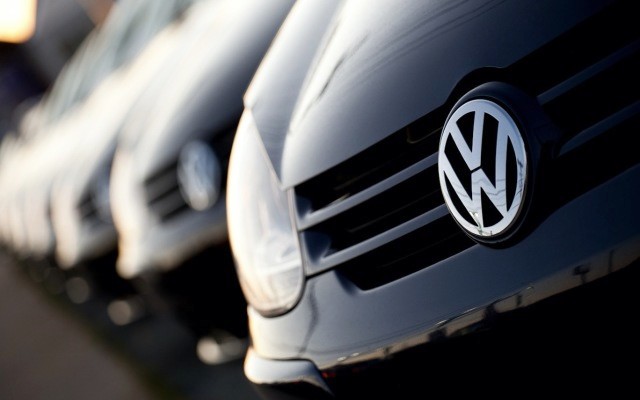Volkswagen secures 10-year lithium supply deal to accelerate electric vehicle production

Ganfeng will supply lithium to Volkswagen and its suppliers over the next ten years.
Volkswagen Group has signed a 10-year supply agreement with China’s second largest lithium producer in a move that will underpin the manufacture of more than 70 pure electric vehicle models over the next decade.
The German auto giant this week announced it had entered into a memorandum of understanding with Ganfeng Lithium Co Ltd for the supply of a significant share of its lithium requirements for batteries to power more than 22 million vehicles within the model ranges, between now and 2030.
That figure is an increase on its original goal of 15 million and signifies the group’s aim to lead the market in electric mobility.
Group board member for procurement Dr Stefan Sommer said the Ganfeng agreement comes at a time of increasing demand for raw materials to fuel electric vehicle cell production.
“We must make sure we cover the demand at an early stage,” he said.
“Long-term agreements like the one we have just concluded [with Ganfeng] are of crucial strategic significance for implementing our electric offensive.”
Accelerating production
That offensive was unveiled last year at Volkswagen’s annual media conference in Berlin, when the Group – which owns 12 auto brands including Porsche, Audi, Bentley, Lamborghini, Seat, Skoda and Bugatti – detailed a strategy to accelerate the production of electric vehicles over the coming decade.
Key components would be an expansion of its assembly capacity to 16 plants globally by 2022 and the launch of a new electric vehicle model “virtually every month”, starting this year.
Fundamental to this strategy is the inking of battery supply agreements with partners in China and Europe to secure the lithium required by its production line.

Volkswagen plans to be producing around 50 different battery-electric models across its 12 auto brands by 2025.
And with global demand for the light metal expected to more than double by 2023, it makes sense that Volkswagen would want to beat the rush.
“With Ganfeng as a strategic partner, we are creating a secure basis for planning capacities and costs,” said head of corporate purchasing (e-mobility) Michael Bäcker.
“We are focused on building close relationships with the raw material industry and identifying and establishing common synergies along the high voltage battery value chain.”
In addition to the lithium supply arrangements, Mr Bäcker said Volkswagen and Ganfeng will co-operate on future topics such as battery recycling and solid-state batteries.
Pace of demand
As the world’s third largest lithium compounds producer, Ganfeng recently commissioned a new facility in China which will add 500 million tonnes per year to its current 1,000Mt/year production capacity.
The company currently exports over 20 lithium products for various applications worldwide, and has developed a breakthrough technology for lithium batteries which shortens the industry-standard production process and allows Ganfeng to speed its delivery to market.
This is not a bad thing when you consider how the pace of demand for lithium is expected to shift up a few gears into the next decade.
Electric vehicles is the market driving that trend.
According to analyst research, global electric vehicle sales grew from 1.2 million units in 2012 to 3 million units in 2017, representing a compound annual growth rate of 19%.
That figure has been estimated to reach 8.6 million units by 2022 (or 23% CAGR), facilitated by battery metals output from companies like Ganfeng.
China has traditionally been the biggest global consumer of lithium and the nation has commenced investing heavily in global lithium deals in a bid to corner the market.
In the past two years alone, it has invested $4.2 billion in South American lithium mining operations, surpassing the value of similar deals by Japanese and South Korean companies in the same period.
Chinese entities now control nearly half of global lithium production and 60% of electric battery production capacity.
National Electric Vehicle policy
While parts of Europe and Asia dominate the electric vehicles market, Australia has lagged behind in its commitment. However, an ambitious election pledge announced this week by the federal Labor party hopes to speed the uptake.
Under the proposed National Electric Vehicle policy, the party wants 50% of new cars sold over the next 11 years in Australia to be electric and is offering an upfront 20% depreciation deduction for businesses.
The government would “send a strong signal to the global industry” by setting a target of 50% of new government purchases and leases to be electric by 2025, creating a second-hand market in the process.
While not setting a timeline or exact target, it also flagged its intention to introduce vehicle emissions standards to “ensure consumers are made significantly better off”.
The Australian Automotive Dealer Association and the Federal Chamber of Automotive Industries have slammed the policy as unrealistic, while the Electric Vehicle Council has lauded it as a potential “game changer which will spur investment and start driving the nation into a cleaner transport future”.
“The lack of certainty and support that the Australian Government has offered the electric vehicle sector to-date is unique in global terms,” said chief executive Behyad Jafari.
“Labor’s 50% target will finally show industry that Australia is committed to an electric transition and allow greater investment to follow.”
